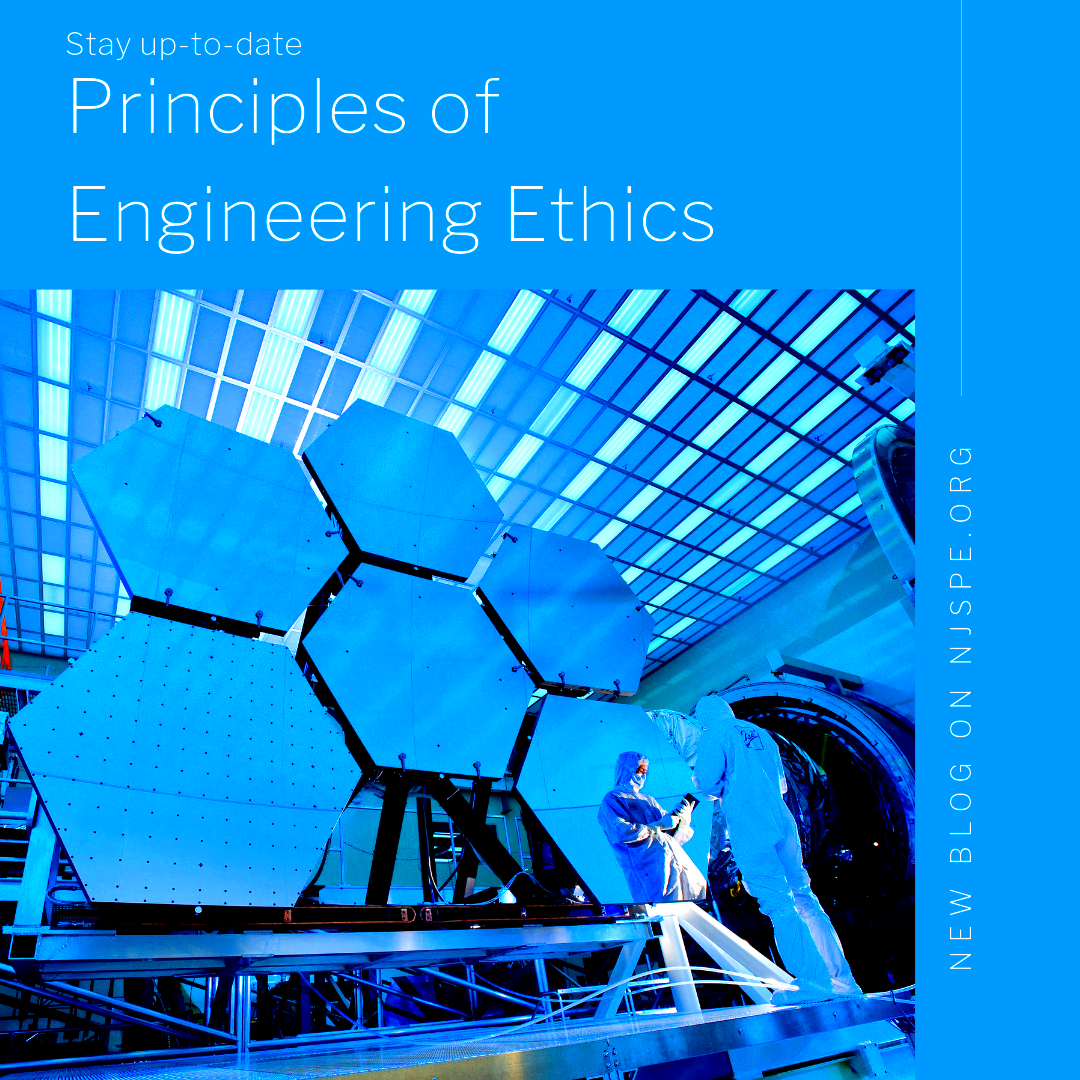New Jersey Ethics Rules and Laws for Engineers
Engineering is a profession that significantly impacts society. In New Jersey, engineers must adhere to strict ethical standards to ensure public safety and welfare. These ethics rules are designed to guide engineers in their decision-making processes, promoting integrity and professionalism in their work. Understanding these rules is essential for maintaining the trust of clients and the public.
Importance of Ethics in Engineering Practice

Ethics play a crucial role in engineering practice for several reasons:
- Public Safety: Engineers are responsible for designing systems and structures that affect the safety of individuals and communities. Ethical practices help prevent harm.
- Professional Integrity: Adhering to ethical guidelines fosters trust between engineers and clients, promoting honesty and accountability.
- Reputation: Engineers who uphold ethical standards enhance their professional reputation, leading to more opportunities and referrals.
- Legal Compliance: Understanding and following ethics rules helps engineers stay compliant with laws and regulations, reducing legal risks.
In essence, ethics in engineering are not just rules; they are the foundation of a responsible practice that prioritizes the well-being of society.
Overview of New Jersey Ethics Laws for Engineers
New Jersey has established a comprehensive set of ethics laws to guide engineers in their professional conduct. Here are the key components:
- Code of Ethics: Engineers must adhere to the New Jersey Board of Professional Engineers and Land Surveyors’ Code of Ethics, which outlines expectations for behavior.
- Conflict of Interest: Engineers are required to disclose any conflicts of interest that may influence their professional judgment.
- Confidentiality: Engineers must maintain the confidentiality of client information and proprietary data.
- Competence: Engineers should only undertake work they are competent to perform and seek assistance when necessary.
- Honesty in Representation: Engineers must accurately represent their qualifications and the capabilities of their projects.
Understanding these laws helps engineers navigate their responsibilities and promotes ethical practices that serve the public interest.
Key Principles of Ethical Conduct for Engineers
Ethical conduct in engineering is essential for maintaining trust and integrity in the profession. The key principles that guide engineers in their daily work include:
- Integrity: Engineers should always be honest and transparent in their professional dealings. This means avoiding deceptive practices and being forthright about their qualifications and the limitations of their work.
- Objectivity: It’s important for engineers to make decisions based on facts and sound reasoning rather than personal biases or external pressures. They should strive to remain impartial and fair in their assessments.
- Professional Competence: Engineers must continuously improve their skills and knowledge to provide high-quality services. This involves staying updated on industry standards and best practices.
- Accountability: Engineers are responsible for their actions and decisions. They must accept the consequences of their work and be ready to address any issues that arise.
- Respect for Others: Engineers should treat colleagues, clients, and the public with respect. This includes acknowledging diverse perspectives and fostering an inclusive environment.
By adhering to these principles, engineers can ensure they contribute positively to society while maintaining a high standard of professionalism.
Professional Responsibilities and Client Relationships
Engineers have a variety of professional responsibilities that shape their relationships with clients. These responsibilities are critical for building trust and ensuring successful project outcomes:
- Clear Communication: Effective communication is key. Engineers should keep clients informed about project progress, challenges, and any changes that may arise.
- Understanding Client Needs: Engineers must take the time to understand their clients’ goals and requirements fully. This helps in delivering tailored solutions that meet expectations.
- Confidentiality: Protecting sensitive client information is non-negotiable. Engineers should have measures in place to safeguard data and maintain client privacy.
- Timely Delivery: Meeting deadlines is crucial for maintaining a good reputation. Engineers should plan and manage their time effectively to ensure projects are completed as scheduled.
- Quality Assurance: Engineers must deliver work that meets industry standards and client specifications. Regular quality checks can help ensure this.
Building strong client relationships through these responsibilities can lead to repeat business and referrals, benefiting engineers in the long run.
Reporting Violations and Ethical Breaches
In any profession, it’s important to have mechanisms in place for reporting violations and breaches of ethics. In engineering, ensuring accountability helps maintain the integrity of the field. Here are key points to consider:
- Awareness of Reporting Procedures: Engineers should be familiar with the procedures for reporting unethical behavior within their organization or through professional bodies.
- Anonymity and Protection: Many organizations provide anonymous reporting options to protect whistleblowers from potential retaliation. Engineers should feel safe coming forward with concerns.
- Documentation: When reporting a violation, it’s crucial to document the incident clearly and accurately. This includes dates, times, involved parties, and specific details about the breach.
- Following Up: After reporting a violation, engineers should follow up on the situation. This ensures that the issue is being addressed and reinforces the importance of accountability.
- Consequences of Not Reporting: Failing to report ethical breaches can lead to further harm, not only to the individuals involved but also to the profession as a whole.
By fostering a culture of accountability and openness, the engineering profession can ensure that ethical standards are upheld for the benefit of all.
Consequences of Violating Ethics Rules
Violating ethics rules in engineering can have serious repercussions, affecting not just the individual engineer but also clients, the public, and the profession as a whole. Understanding these consequences is crucial for maintaining ethical standards.
- Disciplinary Actions: Engineers found guilty of ethical violations may face disciplinary actions from licensing boards. This can include fines, suspension, or even revocation of their professional license.
- Legal Consequences: Some violations may lead to legal action. Engineers could be sued for negligence or misconduct, which could result in costly settlements or judgments.
- Loss of Reputation: Ethical breaches can damage an engineer’s reputation. Once trust is lost, it can be difficult to regain, impacting future job opportunities and client relationships.
- Project Failures: Failing to adhere to ethical guidelines can lead to project failures, which not only harm clients but can also have severe implications for public safety.
- Professional Isolation: Engineers who violate ethics rules may find themselves ostracized by their peers, making collaboration and networking much more challenging.
Ultimately, the consequences of violating ethics rules can be far-reaching, highlighting the importance of adhering to ethical standards in engineering practice.
Resources for Engineers on Ethics Regulations
Engineers looking to understand and comply with ethics regulations have access to various resources that can help guide them in their professional journey. Here are some valuable options:
- Professional Organizations: Groups like the National Society of Professional Engineers (NSPE) provide guidelines, resources, and continuing education on ethics.
- State Licensing Boards: New Jersey’s Board of Professional Engineers and Land Surveyors offers resources, including the Code of Ethics and information on reporting violations.
- Ethics Training Programs: Many universities and professional organizations offer courses and workshops focused on ethics in engineering, helping engineers stay informed about best practices.
- Books and Publications: There are numerous books and journals dedicated to ethics in engineering. These resources can provide in-depth insights and case studies.
- Online Forums and Webinars: Engaging in online discussions or attending webinars can provide practical insights and share experiences related to ethical issues.
Utilizing these resources can empower engineers to navigate the complex landscape of ethics, ensuring they remain compliant and responsible in their work.
FAQs about New Jersey Ethics Rules for Engineers
As engineers navigate the complexities of ethical standards, questions often arise. Here are some frequently asked questions regarding New Jersey ethics rules:
- What is the primary ethics code for engineers in New Jersey?
The primary code is established by the New Jersey Board of Professional Engineers and Land Surveyors, which outlines the standards of conduct expected from licensed engineers. - How can I report an ethical violation?
You can report violations to the New Jersey Board of Professional Engineers. They have established procedures for submitting complaints, which can often be done anonymously. - What are common examples of ethical violations?
Common violations include conflicts of interest, misrepresentation of qualifications, and failure to maintain client confidentiality. - Are there resources available for ethics training?
Yes, many professional organizations and universities offer training programs focused on ethics in engineering. These can be invaluable for staying updated on best practices. - What should I do if I’m uncertain about an ethical decision?
If you’re unsure, consider consulting the ethics code, speaking with a mentor, or reaching out to professional organizations for guidance.
By addressing these common questions, engineers can better understand their ethical responsibilities and navigate their careers with confidence.
Conclusion on Ethics in Engineering
Ethics in engineering is not just a set of rules; it is the backbone of the profession. Adhering to ethical principles ensures that engineers prioritize public safety, maintain professional integrity, and foster trust in their relationships with clients and the community. The consequences of violating these ethics can be severe, affecting careers and public welfare. By actively engaging with available resources and understanding their responsibilities, engineers can navigate ethical challenges effectively. Ultimately, a commitment to ethical practices not only enhances individual careers but also elevates the entire profession, leading to better outcomes for society as a whole.
